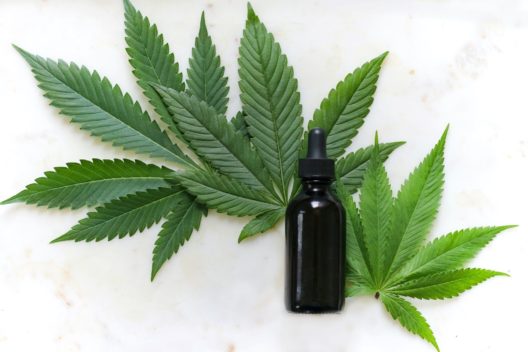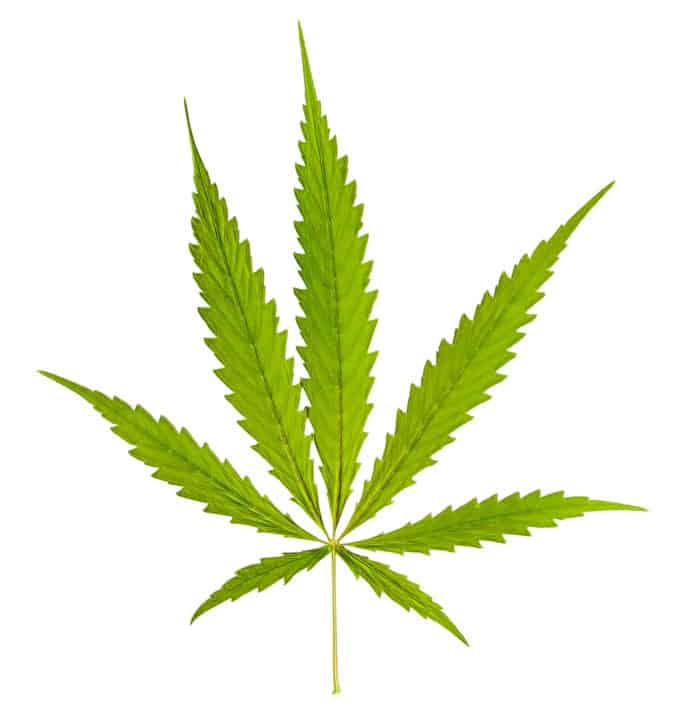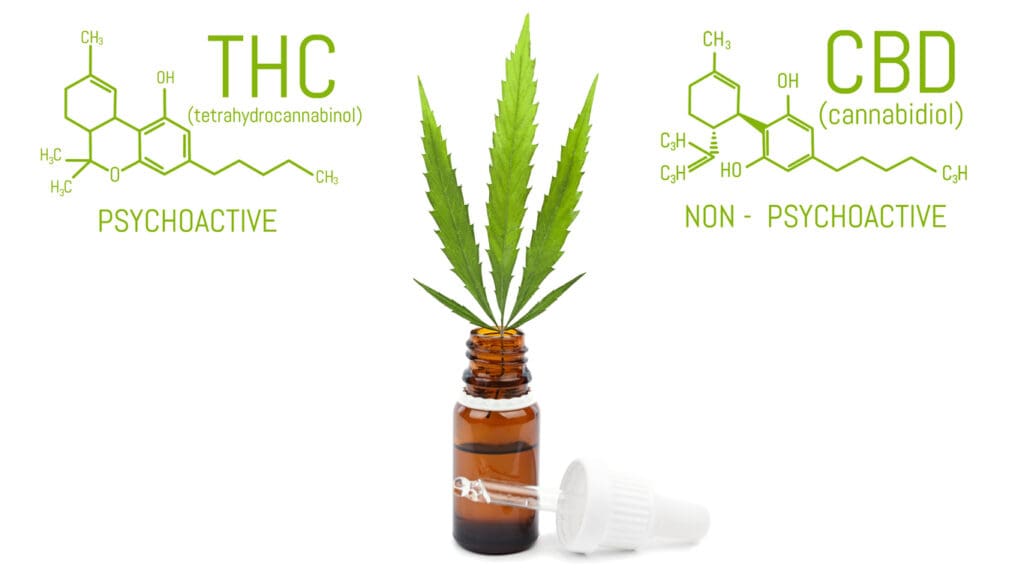The Difference Between CBD and THC

Recreational and medicinal use of CBD and THC is growing more mainstream and more widely recognized all the time. CBD and THC products can be medically prescribed to treat a whole host of ailments, from insomnia to muscle pain and seizures. In some states, they can also legally be used for recreational or for self-medication purposes. Although CBD and THC were once considered dangerous, they are now generally considered safe and effective when taken in controlled doses and in the appropriate form.
As more and more companies begin to sell products containing CBD and THC, customers will have more choices about which substances they consume. For example, the cannabis effects of CBD and THC are subtly different, and you may want to make your selection based on these differences. We break down some of the most common cannabis effects on the brain and examine the differences between chemical compounds in cannabinoid products.
Cannabis Cognitive Effects
Cannabinoid products, such as those found in CBD and THC, bind to the endocannabinoid receptors in our own bodies. This interaction causes physiological and psychological responses that range from relaxation to psychoactive effects of cannabis, such as the feeling of being high. Cannabis compounds are found in cannabis Sativa plant species like hemp and marijuana.
Marijuana is typically smoked to produce a high, while hemp is used for a variety of reasons, such as to make cloth or canvas. Both these plants have been illegal in recent history because of their cannabis effects. However, hemp has now largely been legalized in most of the US, while marijuana is also legal in several states. CBD and THC can be extracted from these plants.
What Are the Main Differences Between CBD and THC?
Although CBD and THC are very similar compounds, there are some differences in the way they interact with our receptors once ingested. In terms of their structure, however, CBD and THC are more or less the same. They are made up of the same amount of hydrogen, carbon, and oxygen atoms. However, the cannabis neurological effects of CBD and THC differ because of the molecular order that these atoms are arranged in.
These differences arise because THC binds directly to cannabinoid receptors (CB1) in the brain. This produces feelings of euphoria and the psychoactive effects associated with getting high. CBD, however, binds only very weakly to these receptors and, therefore, is not associated with the same cannabis effects. It also does not cause drowsiness in the same way that THC can.
Most legal cannabinoid products contain mostly CBD. In most places, cannabis products need to contain less than 0.3% THC to be classified as legal. This is because CBD does not produce the same neurological side effects of cannabis or the same feeling of getting high. It is also not associated with memory loss or sleep disturbances in the way that some, strong THC responses are.
However, although these differences might sound substantial, really there is not much difference between CBD and THC. They both have similar physiological effects and can be used to treat similar medical or mental health problems. This is because they still function in similar ways in the body and, therefore, there is not a straightforward divide between the two.
Cannabis Effects and Benefits
Cannabis products effects vary widely and can be used to treat a range of health conditions. Both CBD and THC contain properties that promote relaxation, so they can often be prescribed to treat anxiety or stress-related conditions. Here are some of the other ways that these treatments can be used:
- Medical Uses for CBD
CBD oil can be used to treat ailments such as chronic pain or inflammation in the body. This is useful for the treatment of conditions such as arthritis. It can also be taken for inflammatory conditions, such as irritable bowel syndrome.
Other uses include prescription for persistent nausea caused by anxiety and depression. CBD can also be useful in treating other symptoms of anxiety, such as racing thoughts or panic attacks. CBD products may also be effective in treating conditions that cause seizures, such as some forms of epilepsy.
- Medical Uses for THC
THC also has mood-boosting properties found in CBD products and can be used to aid the treatment of depression and anxiety. THC may also be recommended to treat conditions such as glaucoma or to boost appetite. Again, similar to CBD, it can be useful in managing chronic pain or inflammation or treating conditions that cause muscle stiffness or spasms.
THC can also improve mood, which can lead to you having more energy. However, some people do experience drowsiness as a result of THC usage. In extreme cases, drinking coffee, taking in more water, or using caffeine tablets (https://gym-expert.com/best-caffeine-pills/) can combat these effects.
Are There Any Side Effects?
Both CBD and THC can cause some side effects, especially if they are used in large or inappropriate quantities. If you are using cannabinoid products, you should always follow the recommended dosage on the packaging. Products that contain mostly CBD may cause side effects such as fatigue or low appetite in a small number of patients. It may also cause diarrhea or weight loss.
THC, in contrast, is associated with some temporary cognitive cannabis effects, such as slowed reaction times or co-ordination problems. There are also potential cannabis effects on memory linked to THC products and slight memory loss is a common side effect. There have also been some studies that suggest a link between THC ingestion and the effects of cannabis on mental health. However, these are not conclusive and usually involve extremely high doses of THC.
Although CBD and THC are recommended to help with nausea, it is also not clear whether or not it is safe for pregnant women. While many women use these products during pregnancy, there is still a lack of conclusive evidence about their effects. Some experts urge caution due to potential cannabis effects on brain development of fetuses. Others, however, suggest that THC in medically prescribed doses is safe for pregnant women to use.
The state of Florida is considering placing cap limits on the amount of THC dispensaries can sell.
Conclusion
There are a variety of ways that CBD and cannabis effects can benefit our health. Whether we use CBD products to combat mental stresses or to help us overcome chronic pain, this is certainly an expanding area. It is likely we will see many more cannabis products on our shelves in future.
Final Call: Do you used cannabis products to help you manage health problems? If so, which ones and how does this work for you? Have you noticed any side effects? Share your experiences in the comments!
Author’s Bio: Thomas Nemel is a freelance writer from Detroit. He writes on different topics but usually about health, wellness and fitness. Thomas loves to engage other people in healthy living.



Comments are closed.